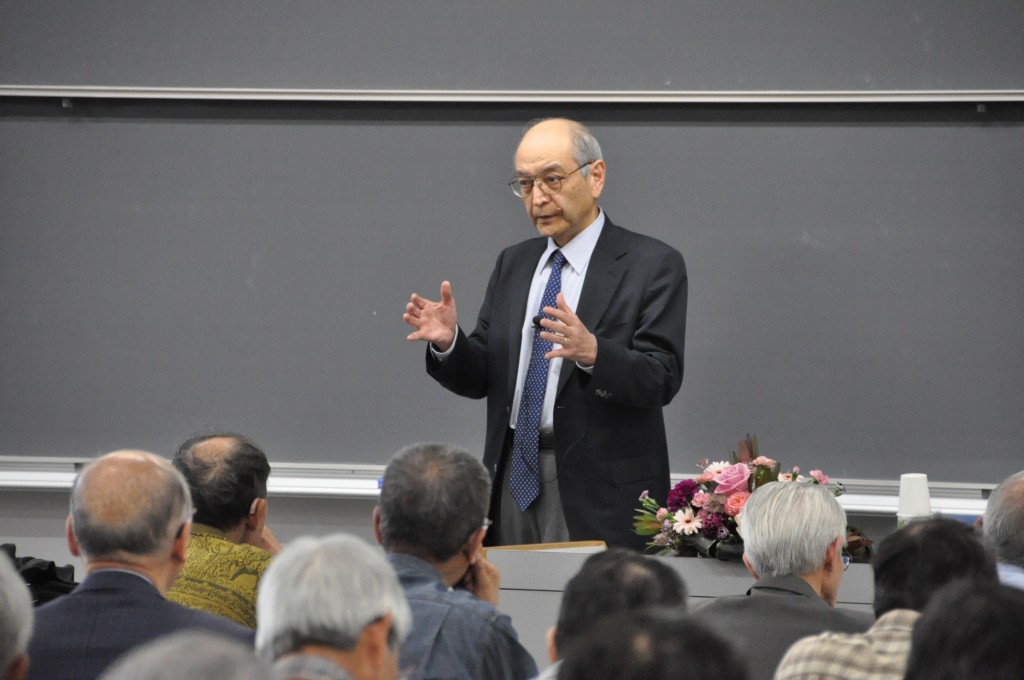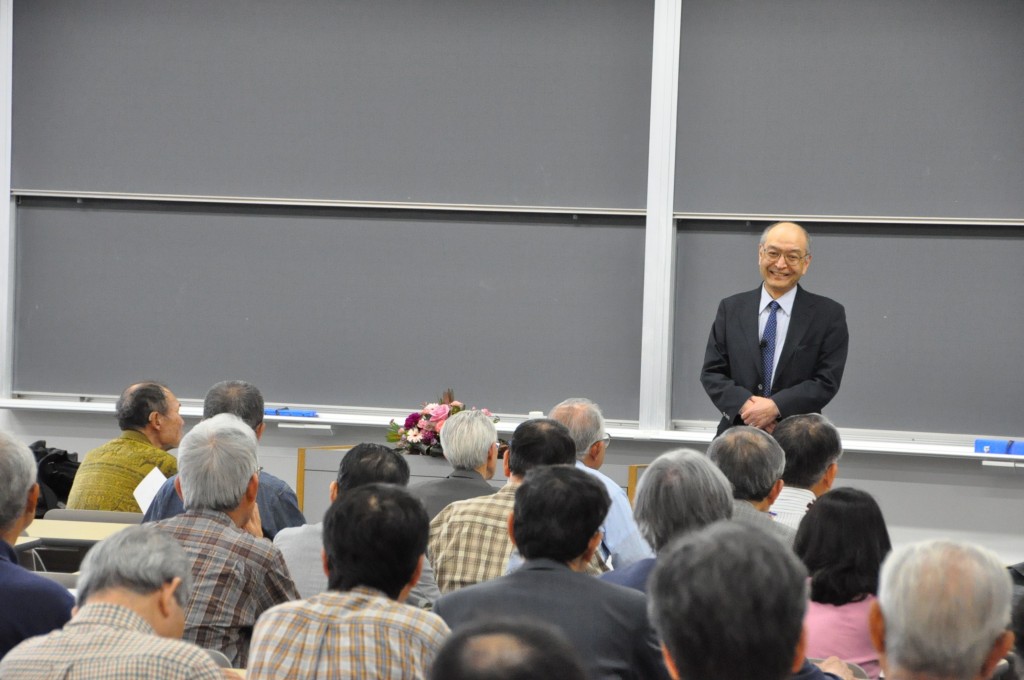Center for Interdisciplinary Study of Monotheistic Religions(CISMOR)Doshisha University
> Public Lectures > Globalization and the American Hegemony: And the Future of US-Japanese RelationsPublic Lectures
Open Lecture by Project 2
Globalization and the American Hegemony: And the Future of US-Japanese Relations
| Date: |
2010/05/08 13:00 − 15:00 |
|---|---|
| Place: | Room R201, Rinko-kan 2F, Shinmachi Campus, Doshisha University |
| Lecture: | Takeshi IGARASHI, professor, J.F. Oberlin University |
| Summary: | |
|
Professor Takeshi Igarashi began this lecture by saying that in modern history, Japan was exposed to three major national crises by the U.S. The first crisis was created by the arrival of U.S. Commodore Matthew Perry. In its wake, Japan was forced to open its ports to the world and had to establish itself as a modern nation state. The second crisis was brought by Japan’s defeat in World War II. In the post-war days, Japan was subjected to the allied occupation, while being pressed to establish a democratic government, and was made to take part in the Cold War shortly after that. The third crisis came with globalization: Japan had to comply with requests for market liberalization and eventually was involved in the worldwide economic crisis. Why has Japan been subjected to the influence of the U.S. to such a degree? Or what has given the U.S. such a huge influence over Japan? To answer these questions, we have to pay attention to “globalization.” Globalization involves rapid and massive movements of people, goods, money, and information across national borders. In the past, there was a drive for territorial expansion among imperialist nations, but imperialism is different from today’s globalization, because in global society, both individuals and companies play a central role. Generally, countries with a huge population of immigrants inherently embody the nature of a global society, and today, the U.S. assumes the leading role in promoting globalization on a worldwide basis. Let us consider the reason behind this. Speaking of the movement of “people,” the U.S., as a country built on immigration, has accepted a great many immigrants from Asia and Central and South America since 1965, when the U.S. relaxed its restrictions on the entry of immigrants, which added to the racial and ethnic diversity of the country. In terms of the movement of “goods,” it should be noted that the U.S. owes its national development to international trade, and has maintained superiority even over Europe in trading since the end of the 19th century. As for the movement of “money,” the U.S. became a creditor nation after World War I, and Wall Street in New York, together with the “City” in London, has since been at the center of international financial trading. The U.S. is also leading the world in the area of information, having accelerated the globalization of information through the IT revolution since the 1990s. Inherently, the U.S. embodies the nature of a classical “empire” in the sense of a center of civilization and has created a modern lifestyle based on pop culture and a culture of consumption, while exporting such culture to the rest of the world. Special attention should be paid to the fact that such soft power is one of the factors behind the international leadership of the U.S. After World War II, the U.S. demonstrated its leadership both in the political and economic arenas in organizing the United Nations and creating the Bretton Woods system, respectively. During the period of the Cold War that followed, the U.S. played a key role in stabilizing democracy and achieving economic development within the Western Bloc, and thus created interdependent relationships among Western nations. After the Cold War was over, the influence of the U.S. reached the former Eastern Bloc as well, and this has resulted in the emergence of globalization. However, since the 1980s, intensifying international competition has threatened the superiority of the U.S. in the world economy. As well, the Islamic world, which has reacted against the American lifestyle, has produced extremists who have posed additional threats to the U.S. such as by launching terrorist attacks. In the 21st century, the Iraq War and the worldwide financial crisis have dealt a considerable blow to the country, making the confusion even more serious. Against this backdrop, the new Obama administration has determined to depart from the policies promoted by the U.S. since the Reagan administration. Under President Obama, this country is poised to demonstrate its leadership in addressing global issues, such as the nuclear problem and global warming, instead of maintaining its superiority by exercising its military and economic power. In the light of these changes after the end of the Cold War, we are now required to reconsider the Japan-U.S. Security Treaty, taking into consideration the drastic change in the power balance in Asia, especially with the rapid rise of China. Professor Igarashi concluded this lecture with the remark that the concept of the “East Asian Community” proposed by former Prime Minister Yukio Hatoyama deserves serious attention, and that the Japanese government, though faced with several pressing problems, such as the Futenma issue, should start working toward the realization of this concept with an awareness of its importance for the Japan-U.S. relationship of the future, 20 or 30 years from now. Ryuji Fujimoto (Research Fellow, CISMOR, Doshisha University) |
|
|
Program(Japanese) Handout(Japanese) |
|

